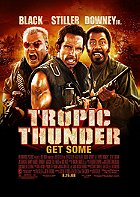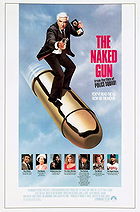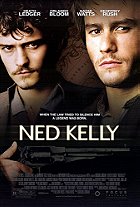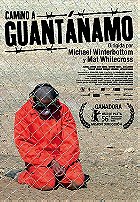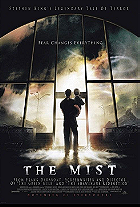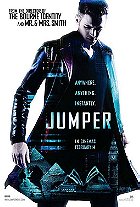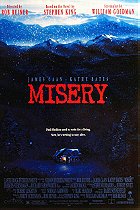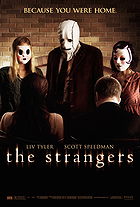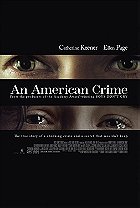Farmer: "I'll kill him."
Uwe Boll's In the Name of the King: A Dungeon Siege Tale is an overproduced, nonsensical, pale aping of Peter Jackson's Lord of the Rings trilogy.
It's impossible to start a review of a Boll product without mentioning the man's abominable career. Boll, the purveyor of such "efforts" as BloodRayne, appears to genuinely enjoy vandalising modern cinema. Boll possesses a truly repulsive ego as evident in recent video interviews, and believes he is a great filmmaker. He also dismisses negative reviews as the products of small, jealous minds. He frequently directs video game adaptations with absolutely detestable consequences.
Uwe Boll appears to have no soul, nor does he possess any filmmaking skill or artistic acumen. Yet his company never fails to release endless amounts of appalling films helmed by the German hack director. Renowned filmmakers like Terry Gilliam and David Lynch are suffering in the industry while this German joke persists in the nonstop creation of new projects that yield terrible results. Millions of dollars have been utilised by Boll to create these movies...with embarrassing box office earnings (BloodRayne was his biggest flop - its budget was roughly $20 million, and worldwide it didn't even break $4 million). Uwe Boll's personality and "talent" in filmmaking is so detestable that words fail me. Just to think that out of the trillions of unborn sperm, Boll was granted the gift of life. What a senseless waste!
In the Name of the King: A Dungeon Siege Tale evokes ideas from several fantasy epics rather than producing something original. In a nutshell: Boll's latest film to stain global TV screens is an everything-must-go yard sale of clichés and proverbial formulas. I have no idea how to recount the plot of In the Name of the King as Boll's storytelling faculties are awful. There are too many inept occurrences during the 2-hour running time that I'd be wasting cyberspace just to list them. Essentially the central character is a labouring chump known as Farmer (Statham). Apparently his name is Farmer because, as his wife quotes, he believes we "become what we do". What a peculiar philosophy, Mr. Talentless-Hack Boll.
Anyway, Farmer's family is torn apart when the Uruk Hai - sorry, I mean Krugs - desecrate his village. Farmer vows revenge on the Krugs and sets out with two companions. Meanwhile, King Konreid (played by Burt Reynolds...yes, you read that right) is amassing an army to attack a powerful sorcerer (played by Ray Liotta...yes, you also read that right) who controls the Krugs.
I honestly haven't a clue how to further elaborate on the plot. The best I can do is list all the films it steals ideas from: the aforementioned Lord of the Rings series (basically all the battle scenes are situations taken straight from these films), Star Wars, Pirates of the Caribbean, The Princess Bride (hero's wife is taken hostage, hero must rescue her), Gladiator, Friday the 13th (yes, it appears to steal from here as well) and many others. Heck, for good measure we have the inevitable "twist" of a long lost father and son. Better yet, they're reluctant to believe the long lost family tie until one of them is on their death bed.
As for the rest, In the Name of the King is a mind-boggling accumulation of random events and non sequiturs. 90% of the film makes little sense. Like why do the Krug warriors - fundamentally pale imitations of Uruk-Hai from LOTR (except less dexterous) - set themselves on fire and get launched out of catapults? Furthermore, why do the flaming Krugs get launched into trees? And how does Ray Liotta's character plan to kill Farmer with a few magically placed books attached to his wrists and ankles? More importantly, where the hell to the ninjas come from? All questions without answers. Uwe Boll's intention is to give his audience mindless action. He forgets that action sequences are futile if the audience has no reason to believe (or care) what's happening. The stupidity increases as Statham's Farmer becomes capable of acrobatic jumps that could never be achieved by a regular human unless a trampoline was in place. The ninjas have no reason to be there either, yet they are...and they descend from the trees halfway through a battle.
Qualitatively, this medieval mess establishes Boll as being in the same league with folks who produce porn. But Boll is unbelievably worse. You see, porn films still give the audience what they want - nudity and sex - while Boll isn't capable of giving an audience the action they yearn for. Boll's films retain a few similarities to the porn universe though...such as the terrible storyline and appalling acting.
There are an abundance of secrets behind the sub-par quality of Boll's movies. Virtually everything is wrong with them and it's a waste of space to list them all! There is one solid logical reason that could provide reasoning for the retarded nature of Boll's filmmaking. This reason is up there on the screen for everyone to see...the man cannot cast a movie properly! It's amazing that despite Boll's horrendous reputation, he can still attract a few decent names. The only true A-List performer is Jason Statham. Statham had delivered solid performances in films such as Crank. Mix him with a bad director and the results aren't anything to write home about.
The rest of the cast are has-beens and never-really-weres. Ray Liotta and Matthew Lillard appear to be vying for the Ham and Cheese Award in each scene they share. Lillard's accent is dismal, to the point that not even Boll was responsible for his awfulness. Liotta is some creepy sorcerer who appears to spend his time in a magical bubble controlling his warriors. These scenes don't make a lick of sense!
Burt Reynolds hasn't done anything good for years. As a medieval king he fails hopelessly. The armour never seems to suit him (the helmet even looks crooked) and he's given embarrassing dialogue.
John Rhys-Davis is further proof of Boll's ambition to place this film in the league of Lord of the Rings. Rhys-Davis hasn't been given much work lately, but surely he has sufficient funds to keep his life going. So why on earth did he agree to defile his career?! At one stage his dialogue grows incredibly clichéd and embarrassing: he's wounded and says "How could I have been so stupid? Forgive me!" Frankly I think his agent was sitting beside him, and Rhys-Davis was talking about his career being ruined by agreeing to appear in the film.
Additionally there are a few females tossed into the mix. Leelee Sobieski, Claire Forlani and Kristanna Loken are as useless as everyone else. Leelee in particular is a vain, emotionless wreck who appears useless.
Then there's Ron Perlman in a career-worst performance! In all fairness, it wasn't his fault. It was the fault of the screenwriter.
This brings me onto my next point: Boll keeps failing due to the poorly written screenplays. Doug Taylor's terrible screenwriting skills are brought to the fore when it comes to criticising this awful production. Taylor appears to be striving for lyrical dialogue similar to Lord of the Rings. The primary difference is that the screenwriting committee for LOTR also had an outstanding creative team to breathe life into the script. Peter Jackson's transcendent direction totally immersed us into a beautiful universe...instead of achieving this, Taylor reels out endless clichés and archetypes in addition to countless ideas completely stolen from the LOTR trilogy.
During most of the battles it's possible to evoke memories of LOTR. Occasionally shots look like they've been lifted from the trilogy. The only difference is...Uwe Boll has no sense of style! The mayhem is poorly orchestrated due to disjointed editing and shoddy over-the-top conceptions. You will have no idea what is actually going on. Boll's camera zigzagging around the action is comparable to a drunken hobbit with ADD! Just like BloodRayne, Boll's camera movements are as stylish as a monkey with a paint brush...however this probably offers questionable degradation to monkeys.
In the Name of the King: A Dungeon Siege Tale is simply Boll's late entry into the Lord of the Rings rip-off competition. If you're longing for another woeful copy of every sword-and-sorcery epic ever made, this film is definitely it. Throughout the time between the film's opening to its conclusion, we're dropped into the middle of this unconvincing world and asked to buy every moment of it. Even worse, it's overflowing with pseudo-spectacle swordplay and dull special effects. The pacing is schizophrenic, the editing is clearly from the "meanwhile, in an alternative section of the film" school of cutting, and the stupefyingly stilted dialogue bestows more inadvertent laughs than the actual moments of forced funny business. The violence is also diluted to attain a certain rating in a bid to score big at the box office. This is the kind of crap that makes Eragon seem like the second coming of Tolkien! At the end of the day, the film runs at 2 hours and it's too exhausting to be fun. It's still superior to Boll's usual output, but even that's the furthest thing from praise.
1.9/10
 Login
Login
 Home
Home 183 Lists
183 Lists 1670 Reviews
1670 Reviews Collections
Collections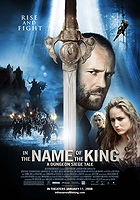
 0 comments,
0 comments, 